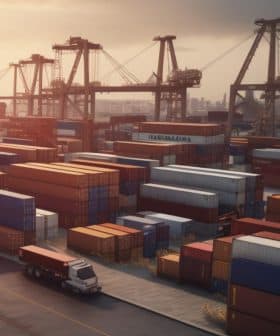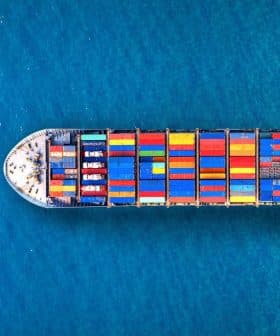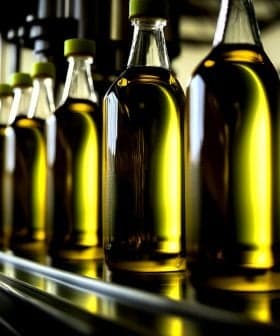Olive Oil Detained Due to Pesticide Traces
Italian extra virgin olive oil shipments to the U.S. have been halted due to pesticide traces detected by U.S. Customs, with 98 containers stranded in New York and Seattle, according to Italian MEP Sergio Silvestris. The levels of Chlorpyrifos-ethyl found were below EU limits but not accepted in U.S. olive oil production, prompting concerns about trade barriers and the need for FDA negotiations.

The detection of pesticide traces has stranded 98 shipping containers of Italian extra virgin olive oil in the ports of New York and Seattle, according to Italian Member of the European Parliament Sergio Silvestris.
In a written question earlier this month, Silvestris informed Parliament checks by United States Customs and Border Protection on samples in various containers found traces of Chlorpyrifos-ethyl.
The levels detected — ranging from 0.015 to 0.020 ppm — were minimal, and below the maximum allowable residue level (MRL) of 0.250 ppm set for all agricultural crops in the European Union. But the pesticide — used against the olive fly — cannot be used for olive oil production in the U.S., he said.
It is, however, accepted and authorized in the U.S. for use on various crops, with a MRL) of 0.100 ppm.
Silvestris said all EU oil imported by the US is subject to prior checks by the Food and Drug Administration (FDA) and Italian olive oil exporters have for several years had “considerable difficulty” selling their product to the U.S. because of the presence of Chlorpyrifos-ethyl residues. “A pesticide whose use is authorized in Italy and Europe in olive cultivation (under) European Commission regulation 149/2008.”
“At present, over 80 percent of the extra virgin olive oil produced in Italy and sold in the U.S. remains blocked in 98 containers at the ports of New York and Seattle,” he wrote in an as yet unanswered question dated March 8.
Silvestris linked the matter to the need for changes to FDA regulations and the wider issue of the coming talks this summer on a transatlantic free trade deal.
“Why has a bilateral agreement with the U.S. in relation to that substance not yet been reached?”
“Will the Commission start negotiations with the FDA as soon as possible…with reference to Chlorpyrifos in agriculture and food?”
“What further action does it intend to take in order to ensure free trade between the two parties and prevent sanitary and phytosanitary measures, such as those described, from becoming real international barriers to the export of EU products,” he asked.
An American olive oil importer told Olive Oil Times that some containers of Spanish extra virgin olive oil had also been held.
In 2011/12, the U.S imported just over 317,000 tons of olive oil, up 8.6 percent on the previous season. Italy was the main supplier, followed by Spain.
Juan Corbalán, Brussels delegate of Spanish Agri-food Cooperatives — which holds the presidency of the olive oil section of European farmer federation Copa-Cogeca — said European olive oil exporters suffered restrictions in the U.S., where European quality standards were not recognized.
“We have the feeling they are not very comfortable with olive oil from Europe because it’s more competitive than theirs,” he said.
Criticism in the U.S. of E.U. quality standards and talk of the country possibly introducing its own olive oil marketing order had created a lot of uncertainty and was deterring potential exports to the U.S.
“Producers from the E.U. don’t want to take the risk to go there because they don’t know what will happen tomorrow, they don’t have stability,” he said.









